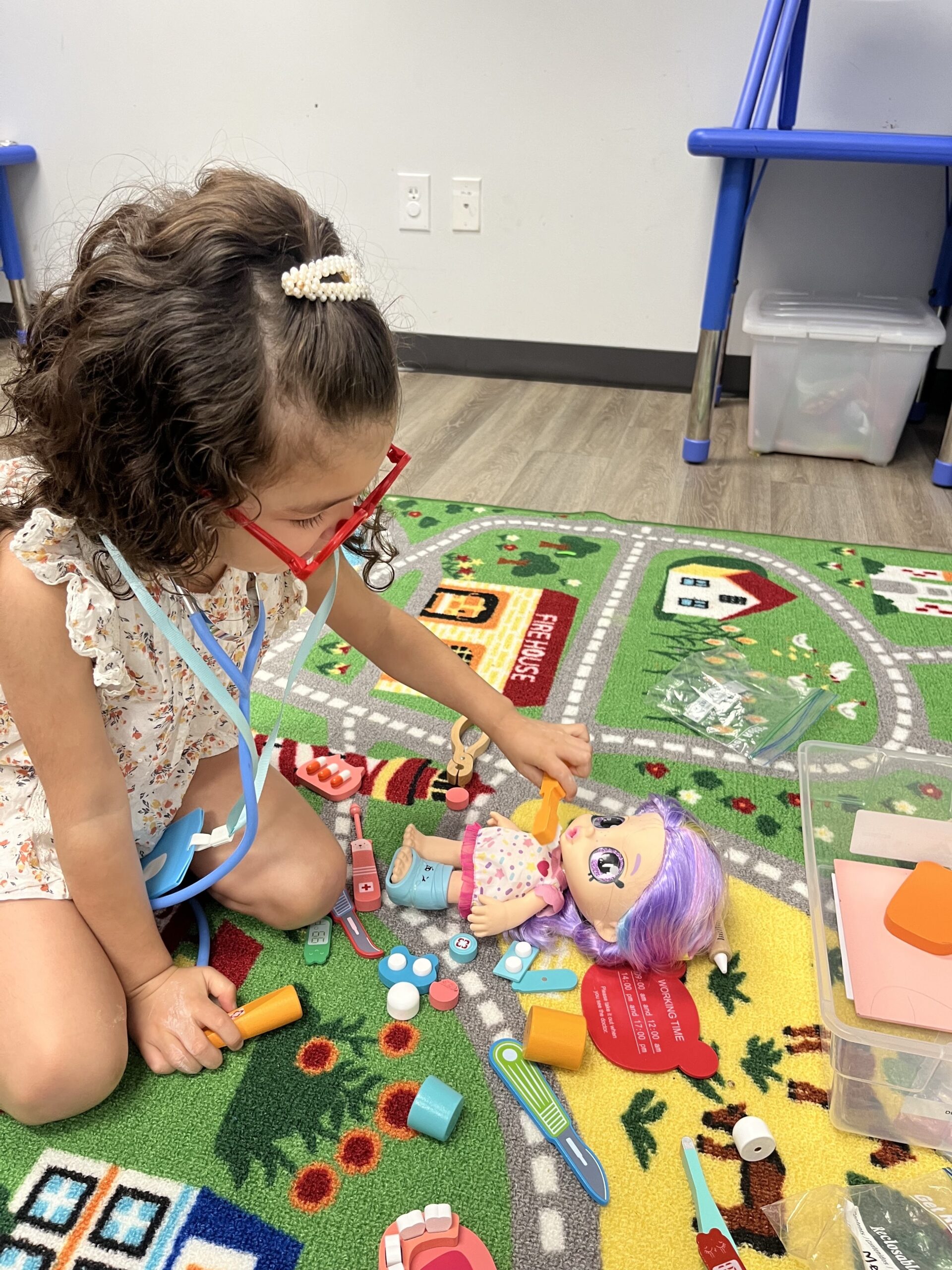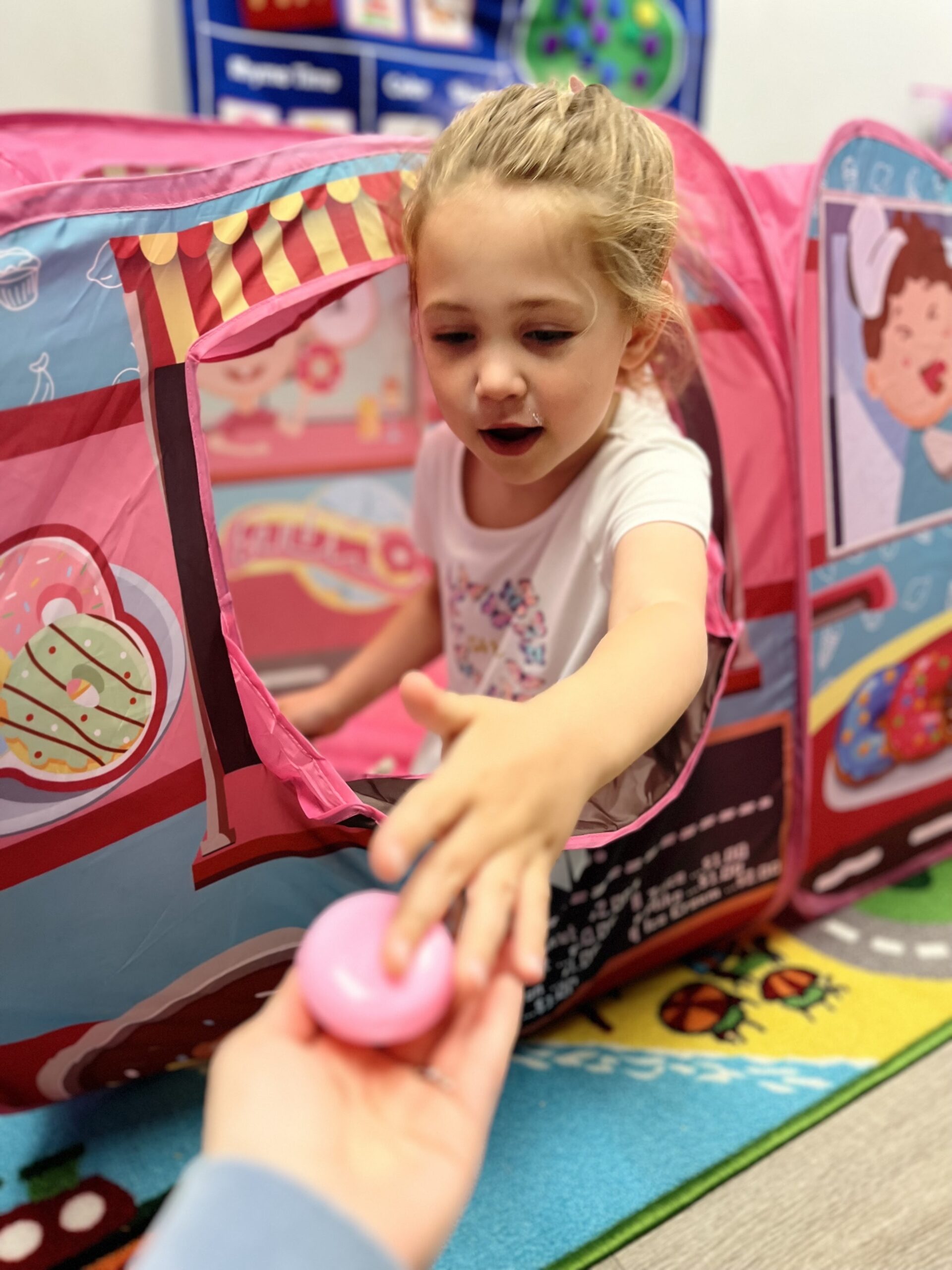The Importance of Pretend Play
What Is Pretend Play?
Pretend play is just another term for what you might think of as “make believe.” When a child is engaging in pretend play, they’re imagining that they’re someone or somewhere else, or that objects are other things – that the stick in their hand is a sword or that a cardboard box is their space ship. Pretend play is a normal and healthy part of childhood development.
At SPACE, we use an integrative approach that makes use of several different therapies and practices all in one place. Pretend play is one of those practices.

Why Pretend Play Is So Important
Just 10 minutes of pretend play improves executive functioning, flexible thinking, and behavior! Why? Because through pretend play, children learn to take on the role of someone else, to see the world through someone else’s eyes. This is especially important for autistic children or children with other developmental conditions.
They also learn how to create a plan and act on it, assign tasks and roles, and express and listen to thoughts and ideas.
How To Use Pretend Play With Your Child
Pretend play is an important marker for language development because when a child begins to pretend, we know that he or she is becoming symbolic! When playing with a child, try to “be the character.” Try not to direct the play, but rather, be one of the kids or characters. Instead of directing the play by asking lots of questions, be a peer and say something like, “Hey, I want some cookies!”
Could Your Child Benefit From Pretend Play With Other Children?
At SPACE, we offer DIRFloortime, as well as other opportunities for pretend play. If you think your child could benefit from pretend play in a safe environment, or any of the other therapies or classes we offer, visit us online or call us at (713) 522-8880.

